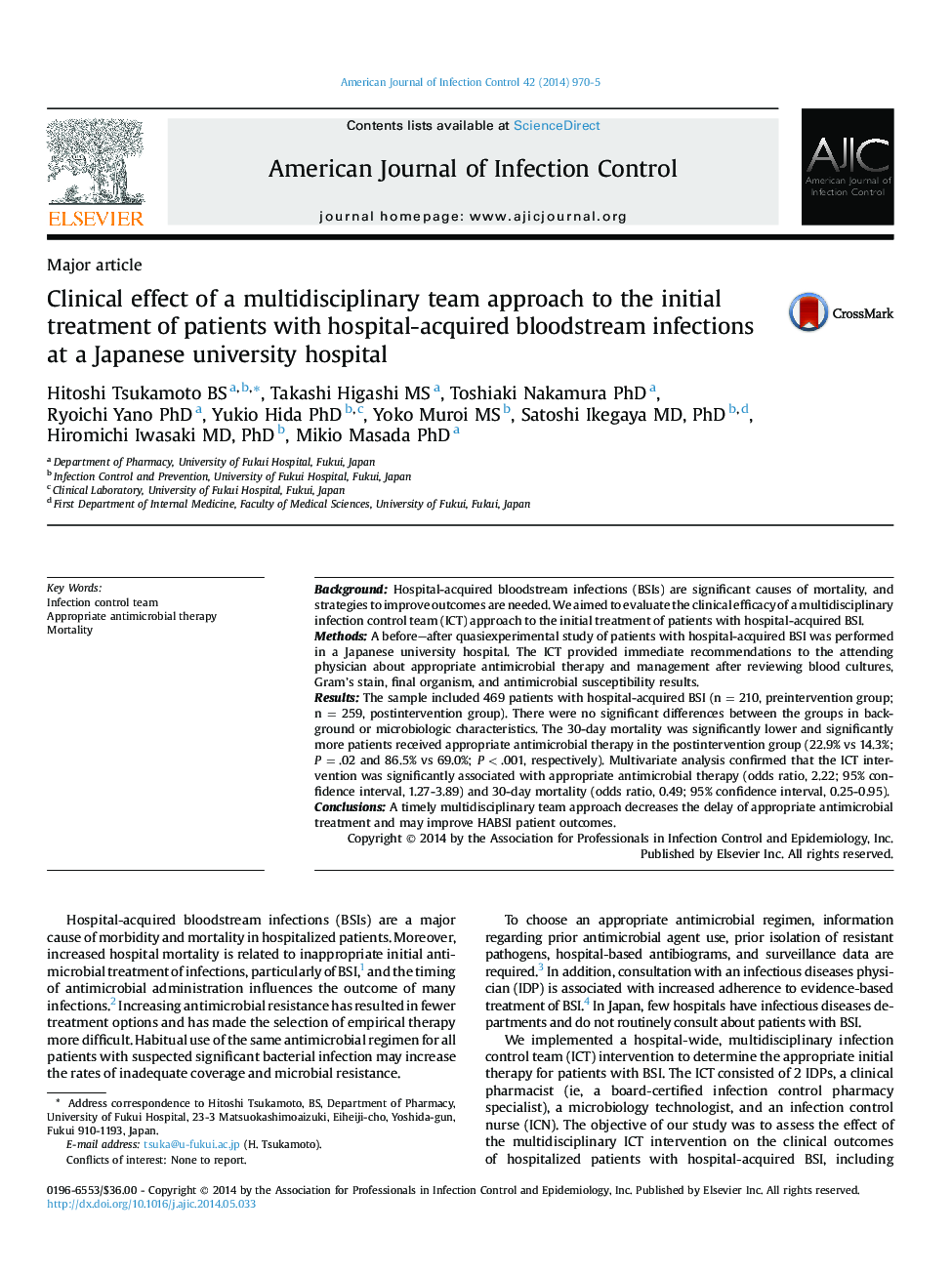| Article ID | Journal | Published Year | Pages | File Type |
|---|---|---|---|---|
| 5867873 | American Journal of Infection Control | 2014 | 6 Pages |
BackgroundHospital-acquired bloodstream infections (BSIs) are significant causes of mortality, and strategies to improve outcomes are needed. We aimed to evaluate the clinical efficacy of a multidisciplinary infection control team (ICT) approach to the initial treatment of patients with hospital-acquired BSI.MethodsA before-after quasiexperimental study of patients with hospital-acquired BSI was performed in a Japanese university hospital. The ICT provided immediate recommendations to the attending physician about appropriate antimicrobial therapy and management after reviewing blood cultures, Gram's stain, final organism, and antimicrobial susceptibility results.ResultsThe sample included 469 patients with hospital-acquired BSI (n = 210, preintervention group; n = 259, postintervention group). There were no significant differences between the groups in background or microbiologic characteristics. The 30-day mortality was significantly lower and significantly more patients received appropriate antimicrobial therapy in the postintervention group (22.9% vs 14.3%; P = .02 and 86.5% vs 69.0%; P < .001, respectively). Multivariate analysis confirmed that the ICT intervention was significantly associated with appropriate antimicrobial therapy (odds ratio, 2.22; 95% confidence interval, 1.27-3.89) and 30-day mortality (odds ratio, 0.49; 95% confidence interval, 0.25-0.95).ConclusionsA timely multidisciplinary team approach decreases the delay of appropriate antimicrobial treatment and may improve HABSI patient outcomes.
